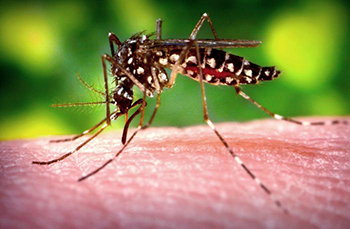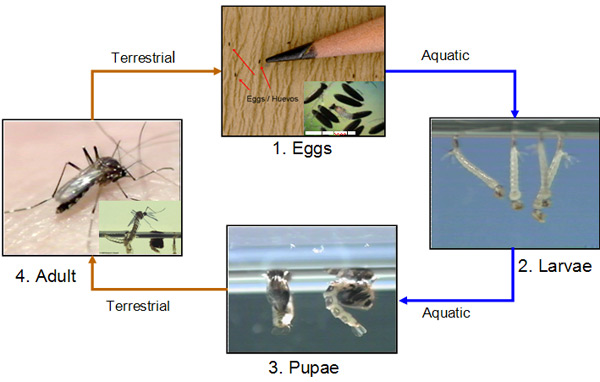Why Study Mosquitoes? - GLOBE Mosquito Project
Why Study Mosquitoes?

the bite of an infected Aedes species mosquito
(A. aegypti and A. albopictus).
Mosquitoes are common insects that live in various environments around the world, particularly in warm, tropic and sub-tropic regions. As temperatures increase in many areas of the world, the presence of disease-carrying mosquitoes should be closely monitored to prevent future outbreaks of Zika and other vector-borne diseases.
There are over 40 genera and over 3,500 known species of mosquitoes. Three of these genera — Anopheles, Aedes, and Culex — have species that transmit diseases that impact people, including malaria, dengue fever, West Nile virus and the Zika virus.
Mosquito Life Cycle
Mosquitoes require water to breed and grow in their early life stages. Female mosquitoes lay eggs at the surface of water in appropriate breeding sites, like ponds, lakes or even small discarded containers. Eggs hatch after two days, producing aquatic larvae. From the first larval stage to the adult mosquito (or imago), larvae pass through four stages, called “instars.” The duration of the aquatic phase and each different larval phase depends on the temperature of the water. Seasonal patterns of temperature and precipitation may be altered by changes in the climate. These changes could affect the spread and intensity of the Zika virus and other disease outbreaks. Other factors, such as land use, are important factors contributing to the spread of diseases. These factors contribute to providing suitable habitats for mosquitoes to breed and grow, and for disease to spread between people.

For more information about the mosquito life cycle, and for other GLOBE mosquito resources, visit the Community Resources section of this website.





